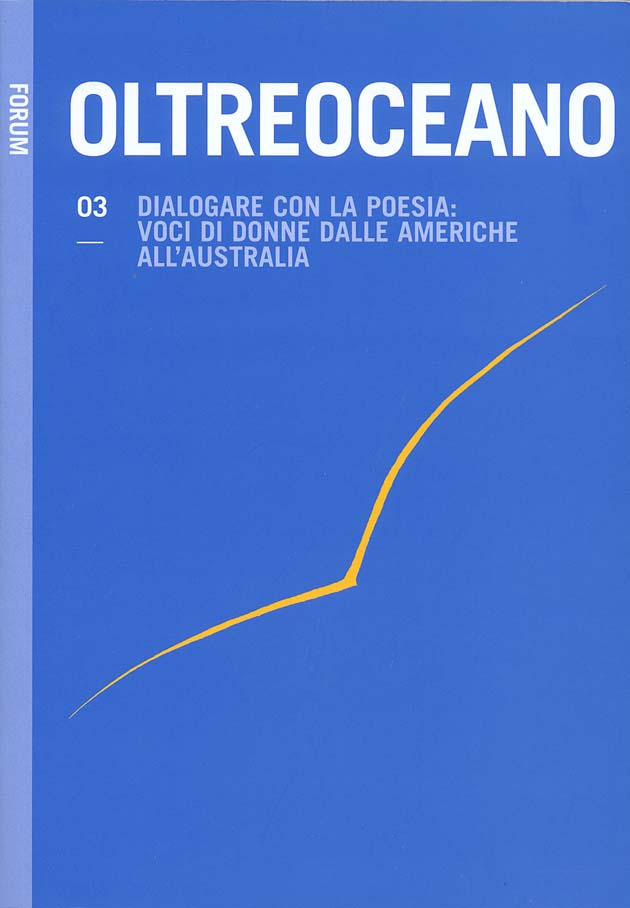La nostalgia dell’età dell’oro: la donna nella canzone popolare argentina
Keywords:
canzone popolare, cultura, donna migranteAbstract
Il tema della nostalgia nelle Americhe, argomento che il saggio affronta in modo particolare all’interno della cultura argentina, focalizza l’interesse soprattutto sulla figura della donna migrante, ruolo sicuramente preso in considerazione, ma spesso indirettamente e non ancora completamente approfondito ed evidenziato dagli studi di settore.
Nostalgia for the Golden Age: Women in Argentinian Folksongs
This essay addresses the topic of nostalgia in Argentinian culture and focuses in particular on migrant women, a subject which has been tackled only indirectly and superficially by studies in the field.
Downloads
References
Foucault, M. (1992): Microfísica del poder. Madrid: La Piqueta.
Gambaro, G. ( 2002): El mar que nos trajo. Buenos Aires: Norma.
Gardarsdóttir, H. (2005): La reformulación de la identidad genérica en la narrativa de mujeres argentinas de fin del siglo XX. Buenos Aires: Corregidor.
Juárez Aldazábal, C. (2006: El aire estaba quieto. La cultura popular en la discografía del Dúo Salteño. Tesis de maestría. Maestría en Comunicación y Cultura. Facultad de Ciencias Sociales. Universidad de Buenos Aires.
Jurado, A. (1987): Descubrimiento del mundo. Buenos Aires: Emecé.
Kaliman, R J. (2003): Alhajita es tu canto. El capital simbólico de Atahualpa Yupanqui. Tucumán-Facultad de Filosofía y Letras: UNT.
Molloy, S. (1990): La imagen de la felicidad: el relato de infancia en Hispanoamérica. In K. McDuffie & R. S. Minc (Eds.), Homenaje a Alfredo Roggiano. En este aire de América (pp. 175-187). Pittsburgh: Instituto Internacional de LiteraturaIberoamericana.
Mosello, F. (2005/2006): Cultura, identidad y folklore. La reproducción de discursos identitarios en el cancionero de José Larralde. Topos y Tropos, II, 7, pp. 6-16.
Moyano, E. (2008): El cancionero popular y las representaciones de la mujer. Cuadernos del Trópico. Letras, artes, memoria, 9, pp. 128-132.
Neruda, P. (1952): Los versos del capitán. El hijo. Recuperado de http://www.ciudadseva.com/textos/poesia/capitan.htm.
Paravati, C. (2006): Italianidad /friulanidad en la cultura argentina: el tango y la presencia femenina. In S. Serafin (Ed.), Friuli versus Ispano-america (pp. 25-49). Venezia: Mazzanti.
Prieto, A. (1966): La literatura autobiográfica argentina. Rosario: Universidad Nacional del Litoral, Facultad de Filosofía y Letras, Instituto de Letras.
Serafin, S. (Ed.), (2004): Gente commigo: l’immigrazione friulana in argentina. In S. Serafin (Ed.), Contributo friulano alla letteratura argentina (pp. 55-69). Roma: Bulzoni.
Serafin, S. (Ed.): Immigrazione friulana in Argentina: Syria Poletti racconta… Roma: Bulzoni. 2004.
Serafin, S. (2004): Donna e emigrazione in Gente conmigo: simboli di una duplice proscrizione. In S. Serafin (Ed.), Immigrazione friulana in argentina: Syria Poletti racconta (pp. 75-90). Roma: Bulzoni.
Serafin, S. (2006): L’Argentina di Syria Poletti: meta di un percorso d’iniziazione. In S. Serafin (Ed.), Friuli versus Ispanoamerica (pp. 53- 65). Venezia: Mazzanti.
Serafin, S. (2006): Ángulos cruzados:la mirada oblicua de escritoras en exilio. Studi latinoamericani / Estudios latinoamericanos, 2, pp. 63-80.
Serafin, S. (Ed.) (2006): Friuli versus Ispano-America. Venezia: Mazzanti.
Serafin, S. (2007): Emigración como iniciación en las novelas de Syria Poletti. In Studi latinoamericani / Estudios latinoamericanos, 3, pp. 149-162.
Serafin, S. (2008): Syria Poletti: la scrittura della marginalità. In S. Serafin (Ed.), Scrittura migrante. Parole e donne nella letteratura d’Oltreoceano (pp.145-155). Oltreoceano, 2.
Downloads
Published
How to Cite
Issue
Section
License

This work is licensed under a Creative Commons Attribution-NonCommercial-ShareAlike 4.0 International License.
The authors undertake to comply with the following conditions, which are considered accepted at the time of submission of their contributions.
The sending of a text implies that it is unpublished and not submitted to be published elsewhere.
1. If accepted, the author shall confer on the publisher the right to publish and distribute it both in paper form and in the online electronic edition. The published articles will be downloadable and made available in open access.
2. Provided that it correctly indicates that the first publication took place in the journal Oltreoceano. Rivista sulle migrazioni the author has the right to: a) reproduce the article in separate extracts or collected in a volume; b) publish the article on their personal website or teaching site provided that these sites are of a non-commercial nature; c) deposit the article in online archives of a non-commercial nature, linked to the institution they belong to or as part of projects for the non-commercial dissemination and open access of scientific works.
The use of contributions by third parties, for commercial or otherwise unauthorized purposes, is not allowed. The publisher declines all responsibility for the unauthorized use of the material published in the journal.












